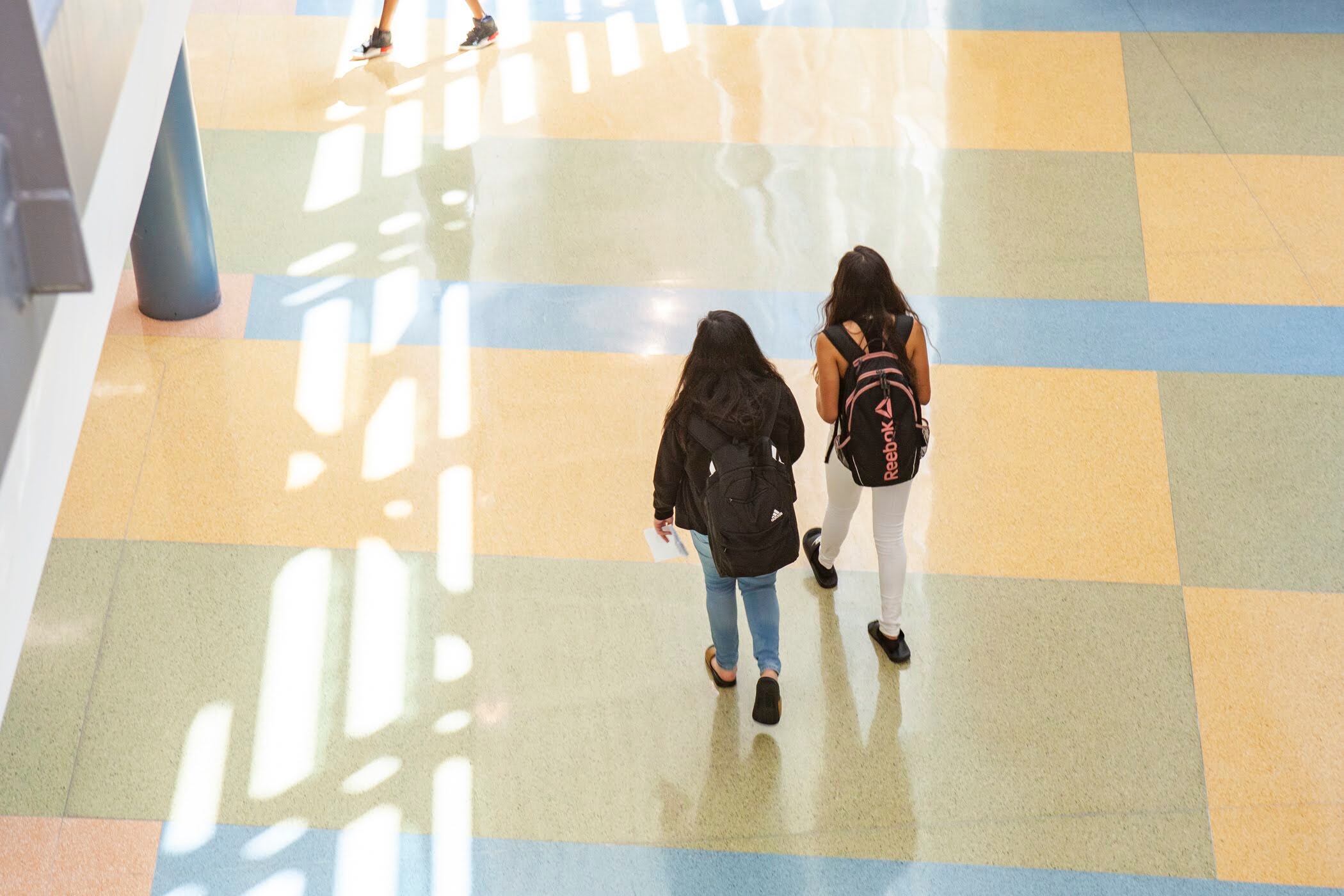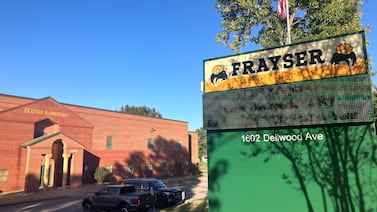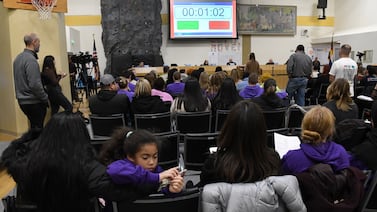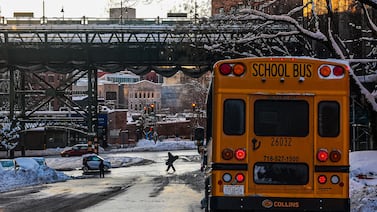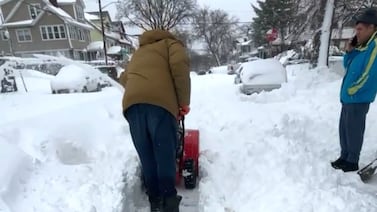With Chicago’s school police contract up for renewal this month, school officials revealed Thursday that schools won’t be paying for police officers during remote learning this coming school year.
Chicago Public Schools announced this week that it will start the school year remotely, as COVID-19 cases rise and as district surveys reveal that the vast majority of Black and Latino parents aren’t comfortable sending children back into school buildings. The earliest students could return would be Nov. 9.
A joint Chalkbeat Chicago and WBEZ investigation found that, even though school is only in session for 10 months of the year, the school district agreed to pay salary and benefits up to $152,000 per police officer and $172,000 per sergeant on 12-month contracts.
Now, with COVID-19 dramatically changing the landscape for schools, the district will again seek to modify its school police contract to reflect how often officers are or aren’t in school buildings.
“SROs will not be reporting to schools during remote learning and CPS will not be charged for days when police officers are not assigned to schools,” the district said in a statement.
The district is still reconciling costs for last school year. Chicago Public Schools said that it will only pay for the time the police officers and sergeants worked in schools; the district won’t be charged for the months when school buildings were closed due to the coronavirus pandemic.
The district hasn’t paid the Chicago Police Department yet. School officials did not respond to a request for an update on this process.
The school police contract will be up for renewal at the Aug. 26 board meeting.
School board President Miguel del Valle hinted that next year’s contract will look different than this year’s, but didn’t offer any concrete details.
“Stay tuned — this is still being worked on,” del Valle said in a recent interview.
Meanwhile, about 30 more schools must vote, through their Local School Councils, about whether to keep officers. How those votes go could influence the final vote on the contract. So far, only three schools have voted to remove their officers, while at least 19 voted to keep them. (See our tracker here).

